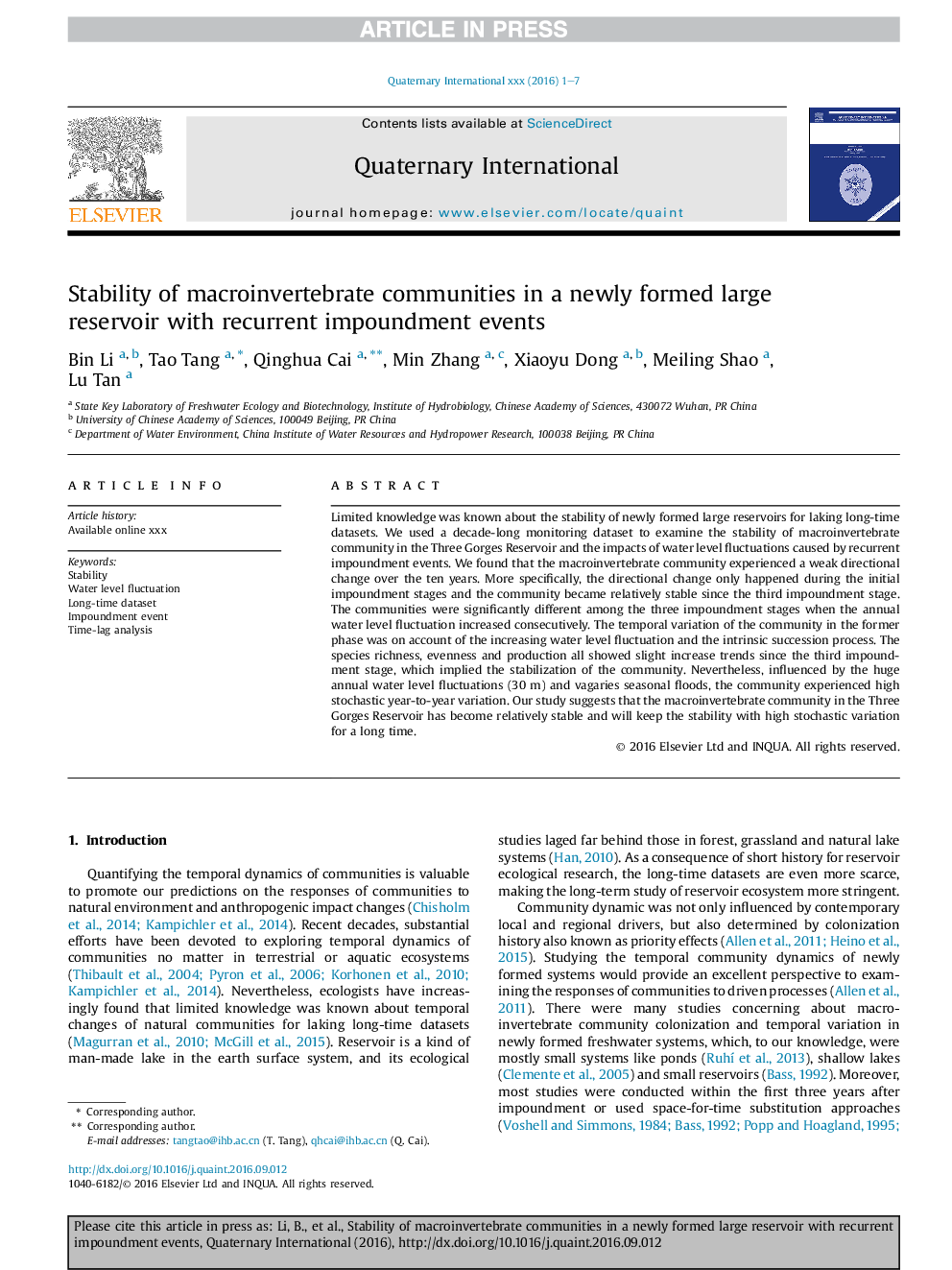| Article ID | Journal | Published Year | Pages | File Type |
|---|---|---|---|---|
| 5113081 | Quaternary International | 2017 | 7 Pages |
Abstract
Limited knowledge was known about the stability of newly formed large reservoirs for laking long-time datasets. We used a decade-long monitoring dataset to examine the stability of macroinvertebrate community in the Three Gorges Reservoir and the impacts of water level fluctuations caused by recurrent impoundment events. We found that the macroinvertebrate community experienced a weak directional change over the ten years. More specifically, the directional change only happened during the initial impoundment stages and the community became relatively stable since the third impoundment stage. The communities were significantly different among the three impoundment stages when the annual water level fluctuation increased consecutively. The temporal variation of the community in the former phase was on account of the increasing water level fluctuation and the intrinsic succession process. The species richness, evenness and production all showed slight increase trends since the third impoundment stage, which implied the stabilization of the community. Nevertheless, influenced by the huge annual water level fluctuations (30Â m) and vagaries seasonal floods, the community experienced high stochastic year-to-year variation. Our study suggests that the macroinvertebrate community in the Three Gorges Reservoir has become relatively stable and will keep the stability with high stochastic variation for a long time.
Keywords
Related Topics
Physical Sciences and Engineering
Earth and Planetary Sciences
Geology
Authors
Bin Li, Tao Tang, Qinghua Cai, Min Zhang, Xiaoyu Dong, Meiling Shao, Lu Tan,
